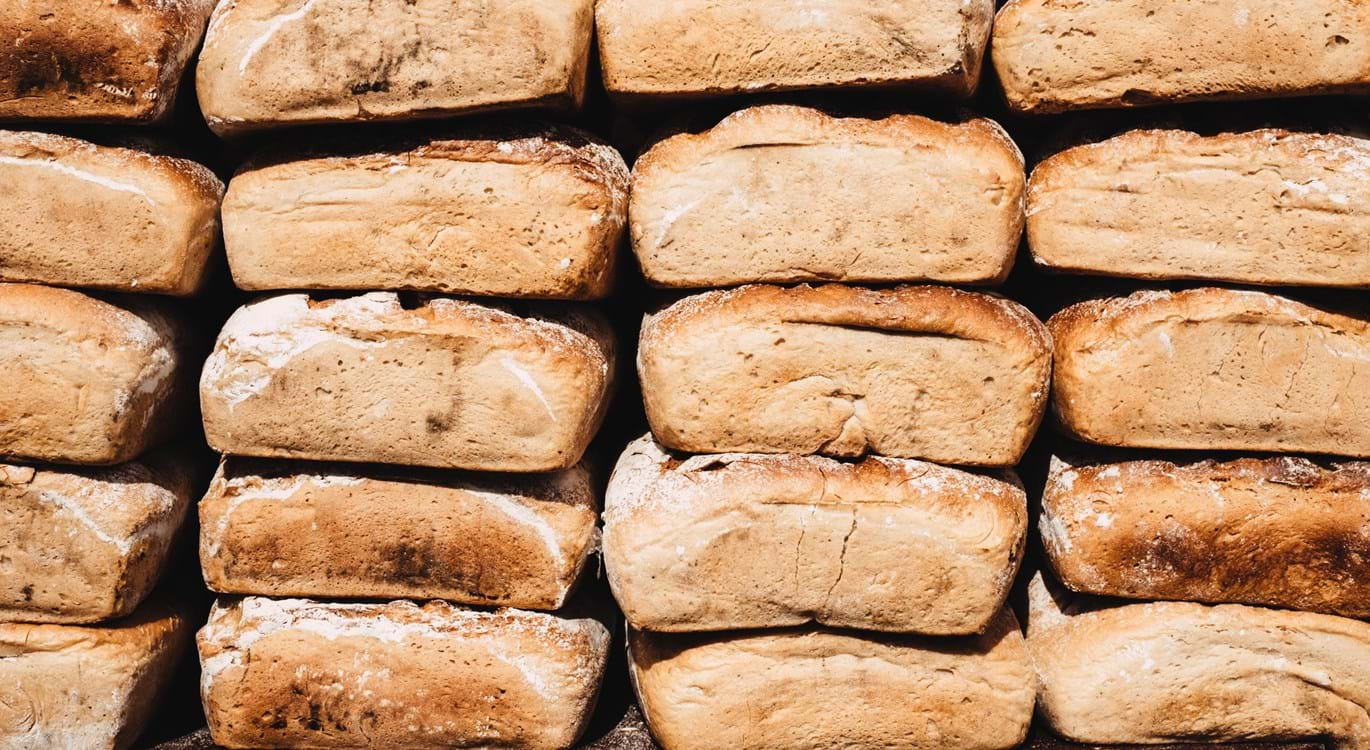The Feeding of the 5000: The Miracle
Some were carrying their feverish children, while others helped their shuffling, infirm parents. Here and there a makeshift stretcher could be spotted, carrying a poor soul whose body was wracked with pain from years of suffering and destitution. But as the disciples’ eyes scanned the crowds, that was not all they saw. The faces told many stories: stories of regret, loss and unfulfilled dreams. Some were disgruntled with religious hypocrisy and prejudice.
Others, however, were brimming with expectation. Many who knew hardship and the cost of Roman oppression were longing for deliverance. The sense of anticipation was palpable as more and more people arrived, hoping to witness something sensational. The reports of miracles and healings had spread throughout the country, and perhaps there would be more today.
Yet, as the Lord Jesus surveyed the scene He saw something deeper, true of every individual. He saw their spiritual need. They were lost, like sheep with no shepherd (Mark 6:34). They were helpless and in danger. They were at risk not only of being led astray but also of being lost for all eternity under judgment for their sin.
As the Lord Jesus looked into their faces, He was moved with compassion. He loved every individual and cared for every need. The rest of the day was spent teaching the crowds and healing the sick. He longed that they would discover He was the answer to their deepest need.
The world has not changed. We live in a world that is still full of need. No country, city or community is free from empty lives and broken hearts. The truth is we all are searching for meaning, satisfaction and hope. If we would take time to consider, we would realise that, despite our social connections and material possessions, we too are lost and empty.
"No country, city or community is free from empty lives and broken hearts."
The feeding of the 5000 stands unique in that it is the only miracle recorded in all four Gospels (Matthew 14:13-21; Mark 6:31-46; Luke 9:10-17; John 6:1-15). Indeed, in John’s Gospel it is the centrepiece of seven miracles. These facts highlight its significance and reality, challenging us to understand its implications.
As the sun began to fall toward the western horizon, the Lord Jesus asked the disciples how they would meet the immense physical need of over 5000 hungry bellies. You can imagine their faces! It would have cost over six months wages to provide everyone with even just a little to eat (John 6:7). Yet there were no nearby McDonalds or any 1st century equivalents where they could buy food for this colossal crowd.
When Andrew found a young lad with five cheap barley loaves and two small fish, he brought him to Christ. This proposed solution seemed completely inadequate. Andrew’s obvious question, ‘but what are they among so many?’, is worth considering. When faced with the needs of our families and communities our resources are soon found to be inadequate. This world’s problems are overwhelming. The little we can give or do makes minimal impact. In fact, our own spiritual need before God presents us with the same problem. No matter how good we try to be, or how hard we try to change, we are full of sin, lust and pride. Our little (sin-tainted) ‘good’ is swallowed up by our many sins, and the Bible is clear we stand guilty of breaking God’s law (Romans 3:19). We each face future judgment by a righteous God who knows every dark secret of our heart and is offended by our persistent rebellion against Him (Romans 1:18).
The solution to the vast need lay in the Lord Jesus Christ. It still does.
In astounding power and love, the Saviour took those five loaves and two small fish and distributed them via his disciples until every last person was filled. It was not that He merely gave each a little to keep them going until they got home. The Bible is clear that everyone got as much as they wanted (John 6:11). They were filled, leaving 12 baskets full of left overs, one for each disciple (John 6:12,13).
The miracle was a reminder of some Old Testament scriptures, which many in the crowd would have been familiar with. The idea of God providing a feast in the wilderness for His people (Exodus 16:15), and turning the barren places into fields of plenty (Isaiah 35:1,2) was not new. This miracle therefore acted as proof of authenticity: it was God’s seal of approval, announcing that Jesus was truly the promised Messiah.
The crowds seemed to have understood this. One who could so miraculously provide food for over 5000 hungry people had the potential to completely transform their land. They wanted to make Him their king (John 6:14)!
The multitude’s excited reaction was what you might expect, but Christ’s was not. ‘When Jesus perceived that they were about to come and take Him by force to make Him king, He departed again to the mountain by Himself alone’ (John 6:15). The Lord Jesus was not motivated by people-pleasing. He had come to meet our great spiritual need. He was going to die for our sins, to make everlasting life available to all who would repent and place their trust in Him.
So when the gastronomically satisfied crowds started calling for His coronation, He headed up the mountain alone. He had a greater, eternal goal in view: our salvation.
The Feeding of the 5000: The Meaning
John’s account of the feeding of the 5000 is followed by a lengthy section of the Lord’s teaching the next day, where He refers back to the feast He had provided. In this discourse we learn a deeper significance to the miracle.
The Lord Jesus began by warning the people against getting distracted by the physical food they had enjoyed. ‘Do not labour for the food which perishes, but for the food which endures to everlasting life, which the Son of Man will give you’ (John 6:27). Rather than chasing after another free lunch, their priority should have been to obtain eternal life.
The Lord later clarified that the ‘food’ they should strive after was Himself. ‘The bread of God is He who comes down from heaven and gives life to the world’ (John 6:33). In coming to Jesus Christ they would receive much more than full stomachs. He would give them everlasting life. But this message was not only for the crowds who gathered that day; it was for the world. Everlasting life is wonderfully available to us all.
This vital message is emphasised in John 6:35: ‘I am the bread of life. He who comes to Me shall never hunger, and he who believes in Me shall never thirst.’ The Lord Jesus alone has the ability to give true life and sustain us spiritually. He doesn’t need to give repeated refreshment or nourishment. Coming once to the bread of life is sufficient forever. Without Him, we will be left continually searching in vain for meaning and purpose, weighed down by our sin and guilt. Ultimately we will face the fire of God’s judgment. 1 John 5:11,12 helpfully summarises this teaching: ‘God has given us eternal life, and this life is in His Son. He who has the Son has life; he who does not have the Son of God does not have life.’
"Without Him, we will be left continually searching in vain for meaning and purpose, weighed down by our sin and guilt."
The Lord Jesus made it clear that we have a responsibility if we are to receive everlasting life. Just as the crowds gathered to Christ that day on the mountain, we must come to Him in faith. Coming and believing are the same thing (see also John 6:40). We must cast aside all other objects of hope for salvation and fulfilment.
No one is so bad that they cannot be forgiven and saved, for ‘the one who comes to Me I will by no means cast out’ (John 6:37). Christ will receive and bless all who trust Him for salvation. Nobody is excluded. Sadly, many admire Christ without coming to Him for the eternal ‘feast’ of everlasting life. It is as though they watch as He feeds the multitudes, yet go home hungry having never come to Him for themselves. Are you still standing at a distance from Christ and missing out on the everlasting life He offers?
The feeding of the 5000 teaches that Christ alone can meet our need of salvation and satisfy our hearts’ longings. His ability knows no limit. The salvation He offers is boundless in both geography and time. All who come to Him will find He is all they need – a Saviour who truly cares for them, who died for their sins and rose victoriously from the dead.
Break Thou the Bread of Life,
Dear Lord, to me,
As Thou didst break the loaves
Beside the sea;
Beyond the sacred page
I seek Thee, Lord;
My spirit pants for Thee,
O Living Word.
Bless Thou the truth, dear Lord,
To me, to me,
As Thou didst bless the bread
By Galilee;
Then shall all bondage cease,
All fetters fall,
And I shall find my peace,
My All in all.
(Mary A. Lathbury)



